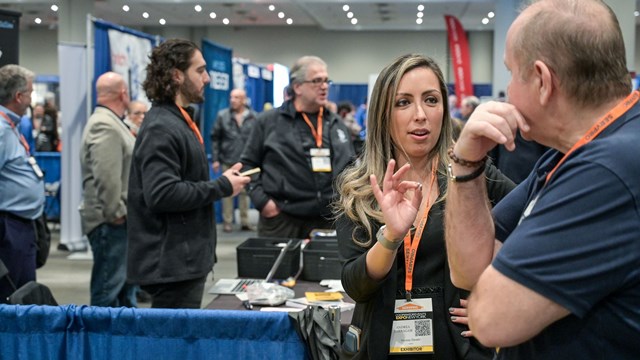When it comes to insurance coverage, it’s what you know about your policy that matters. Not understanding your policy’s limits could be tantamount to not having the right insurance, and in a hurricane-prone area like Florida, that could spell disaster.
While most unit owners and board members have a good grasp of the major insurance coverages they are paying for to protect their building and property (such as homeowners, liability and umbrella) other, more specialized types of insurance also are important to know about. Some of these coverages could be valuable, or even essential, for board members to understand. As board members, they have an obligation to be the fiduciary watchdogs of the community.
Asset Protection
The devil could be in the details of your building or association’s insurance policy, but you won’t know it if you don’t know the actual details of the policy. In times of crisis, understanding that policy could be as valuable to the unit owners as knowing the community’s governing documents. That is why now is the time to act and buy more insurance if you need it. When the rains are on the weather map and targeting your community, it’s too late to get more flood coverage. You must do it before the storm hits, and not just days before.
How well you protect the things you need is almost as important as what you insure against losing. Some carriers are now offering “green” insurance to cover environmentally friendly installations such as solar panels. Experts suggest adding coverage for these improvements.
“The expense of the solar panels will cost more to the building, which will increase insurance premiums,” says Martin Brody, an independent insurance specialist working with Accentria LLC in Boca Raton.
Many of the criteria for green building installations are similar to those for so-called “resilient” buildings. There is an overlap between green construction and resilient construction because typically, green installations are hardy and will stand up well to Mother Nature, says Lynne McChristian, the Florida representative for the Insurance Information Institute (I.I.I.), which has offices in Tampa. The national non-profit group is supported by the insurance industry and teaches the public about issues surrounding insurance coverage.
Other groups also provide useful info for consumers who want to adequately protect their property. The Federal Alliance for Safe Homes (FLASH) is a consumer advocacy group promoting the strengthening of homes and safeguarding of families from natural and man-made disasters, including providing life safety and property protection advice. The group’s website has many offerings, including a “Peril Map” where residents can “Find Your Peril” and see the severe weather risks in their state.
The organization’s website includes informational materials including “A Homeowner’s Insurance Guide to Natural Disasters,” “Stormstruck: A Tale of Two Homes,” and a lot more.
Special coverages are available for building equipment, which will insure the building’s boiler, HVAC equipment, and elevator in the event of catastrophic loss—like a boiler blowing up and causing damage to other parts of the building. Such policies cover equipment breakdowns of the building’s major systems, but only sudden and accidental breakdowns of the equipment.
“Boiler and Machinery insurance is relatively inexpensive, so why not buy it?” Brody says. “It protects against the collateral damage that can be created. Say the cooling tower springs a leak and wets the entire building. You could have millions in damage, and the boiler and machinery insurance would have to pay out.”
The coverage does not insure against a boiler puttering out due to wear and tear. Still, industry pros suggest that residential buildings buy boiler and machinery insurance and add it to the commercial package policy.
Covering the Unexpected
Some sorts of coverage—like Cyber Security insurance—are products of the information age we live in. That doesn’t mean that we can flip through them and ignore them, as we do sometimes with web pages.
Brian Flores Lewis, director of business development for West Palm Beach-based Slaton Risk Services, says this type of insurance is getting more popular, for obvious reasons.
“Hartford is one of the top carriers providing this type of insurance,” Lewis says. “They’re finding people are getting hacked into, with information that’s personal and sensitive—including trademark secrets—getting out.”
Jeremy Henley, an Allstate Insurance agent in Fort Myers, recommends that any business holding sensitive information have cyber insurance.
“Almost every business collects sensitive data. This means that almost all businesses are at risk of a privacy breach that results in unplanned expenses like forensics, legal fees, notification and monitoring costs. Some breaches even have legal fees from class action lawsuits or regulatory actions,” Henley says.
For other threats, such as a building fire, or an individual having a heart attack, companies and individuals alike buy insurance to protect themselves or their assets, Henley says. “For organizations with sensitive data, which is most, there is cyber-privacy liability insurance to protect them,” he says.
While unit owners in condos need only insure for their property and any improvements they’ve made, others in the building have to be covered a bit more. The board of directors of the community should ensure that the place has property and green insurance, but also umbrella, Directors & Officers, flood, and crime insurance. Self-managed communities should have Employment Practices liability insurance; otherwise, the property management company should have it. EPLI coverage deals with wrongful termination, sexual harassment, discrimination, breach of contract, emotional distress, and wage and labor law violations.
Directors & Officers insurance provides insurance for the building in the event of problems with the board being sued. Building Ordinance and Law coverage insures against the increased cost of construction and demolition required by a building due to a fire or another event. In such a scenario, sometimes management must repair the building to comply with code requirements that change the building—such as the requirement for sprinklers to be installed throughout the structure.
Some carriers will include flood coverage in their commercial package policies, unless the property is located in a high-risk flood zone. If the property is located in such an area, the primary flood coverage should be bought through Federal Emergency Management Agency’s National Flood Insurance Program The federal agency keeps maps of flood risk zones, and currently is updating those maps for the third time in four years.
Living in a Flood Zone
Insurance through the federal program has limitations, though. FEMA coverage is limited to $250,000 for a co-op building. For a condo building, the coverage is $250,000 times the number of units.
“Properties located in flood-prone zones should buy excess flood coverage through private insurance carriers,” says Alex Seaman, a senior vice president of HUB International Northeast, which is located in Woodbury, New York.
“Flood coverage can be provided at virtually any location, but is available at much higher rates in high risk zones. FEMA [flood insurance] rates are likely to increase very dramatically over the next several years, as federal government subsidies dry up.”
For condominiums, the law requires that the corporation carry a minimum of $250,000 per unit or 80 percent of the value of the building, whichever is less. For some communities this will be adequate and for others, it won’t. That means in the case of a building with an overall value of $100 million, which includes 100 units, the corporation only must insure each unit up to $250,000.
But the condominium’s governing documents say each unit must be insured to the full value, though banks only require the minimal amount of insurance as dictated by federal law. Even so, if that building should have a tidal wave knock it off its foundation and the city says the building must be demolished, it exposes the board of directors to lawsuits from the individual unit owners, Brody says.
Experts recommend that unit owners fully insure their properties against flooding by buying extra insurance through FEMA. This cannot be done soon enough, if the added coverage is truly needed.
“You cannot get flood insurance the day before you get the big rain. There’s a 30-day waiting period,” McChristian says. “You should read and understand your policy. Does it do what you need it to do?”
But if you are way inland, flood coverage shouldn’t matter, right? The probability of a flood is low, so no worries? Experts disagree.
“Everyone lives in a flood zone, unless you live on a mountaintop,” McChristian says. “Twenty percent of flood claims are paid to those in low to moderate-risk areas. Just because you’re in a low-risk zone does not mean it’s a no-risk zone.”
It’s worth noting that if there is construction and development in your area, it will likely increase your building’s flood risk because the development creates more runoff.
Sewer Backups and Loss of Use
Another seemingly obscure, but increasingly common problem that should be insured against is sewer backups. Because of aging sewer systems and other factors, the problem of sewers backing up into a building and causing damage is becoming a real concern for some buildings. But sewer backup coverage can protect a building from this hazard.
“Sewer backups are not covered under a typical homeowner’s insurance policy, nor are they covered by flood insurance,” says Loretta Worters, vice president of communications for the Insurance Information Institute. “Those types of coverage must be purchased either as a separate product or as an endorsement to a homeowner’s policy.”
In the cases of homes that have been severely damaged and are uninhabitable, homeowners’ policies may provide Loss of Use coverage, which provides reimbursement for lodging, food and other living expenses a homeowner could incur as a result of having to live outside his or her home for a time. Loss of Use coverage also reimburses the homeowner for any lost rental income, provided the homeowner is renting out part of their unit.
Sewer backups are becoming more widespread due to aging sewer systems, combined pipelines and blockages caused by tree roots. A sanitary main blockage left undetected could create a major headache for condominium associations. While some don’t realize it, homeowners and building owners are responsible for their sewer “lateral” which connects the building’s sewer system to the main lines in the street. A break or backup in this area of the system also can be costly.
Sewer backup coverage is available for a nominal cost, and usually is just an additional premium. Most co-op and condo buildings don’t get this type of insurance, but they should.
“The most important thing is to know your risk. People want to live in certain places that put them in harm’s way,” McChristian says. “If you’re risk-averse, you don’t want that sea level home with that wonderful view. It’s not just about insurance—it’s about plans you make to remove yourself from those risk zones when you need to.”
For more information on the topic, visit the Insurance Information Institute’s website: www.iii.org. The Federal Alliance for Safe Homes’ website also is a good resource: www.flash.org. To assess your risk of a flood, visit the National Flood Insurance Program website, at www.floodsmart.gov/ floodsmart.
Jonathan Barnes is a freelance writer and regular contributor to The South Florida Cooperator.






Leave a Comment